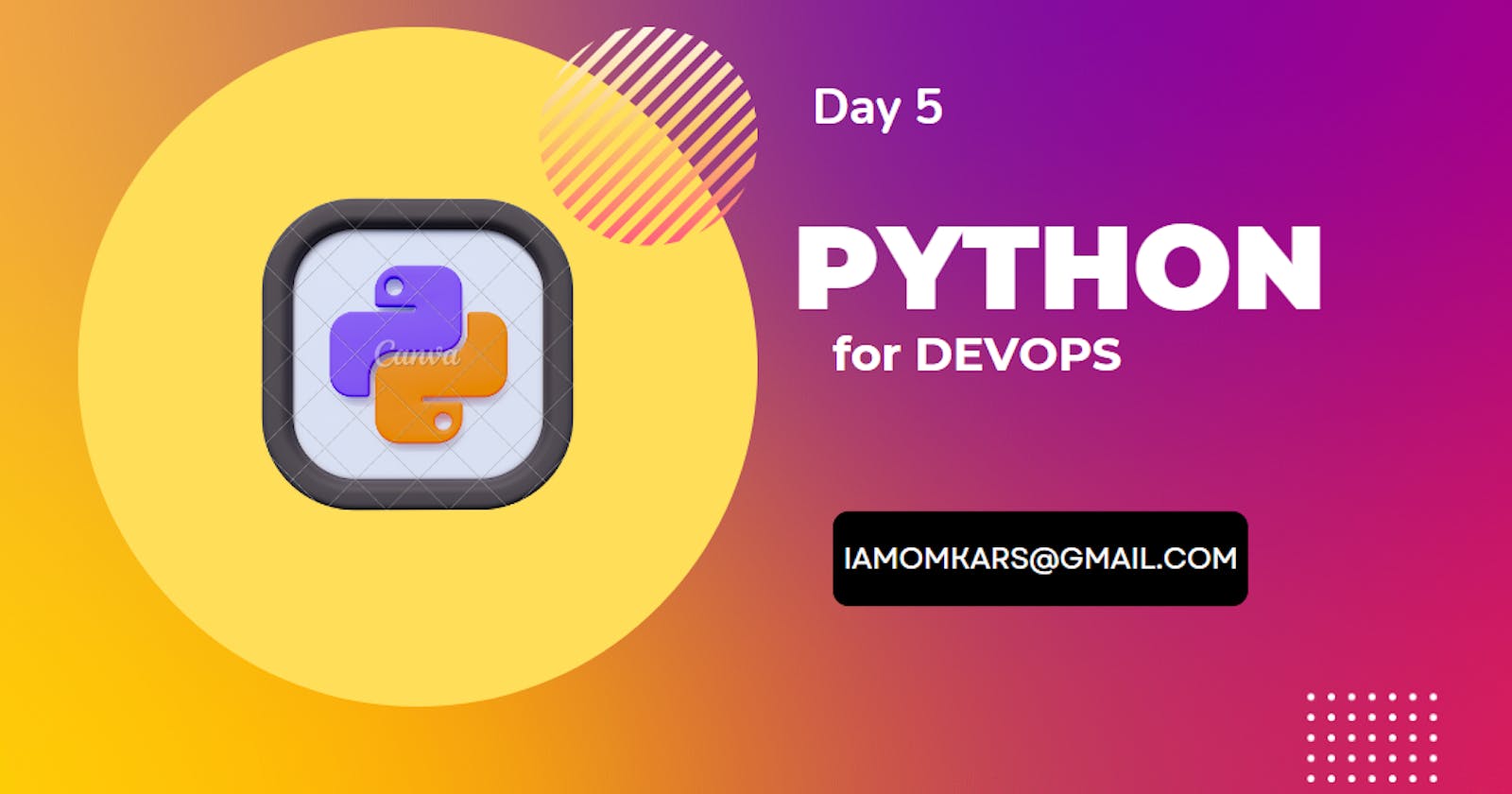As I dive deeper into the world of DevOps engineering, Python has emerged as an crucial tool. Its simplicity, versatility, and vast ecosystem makes it a perfect tool for automating tasks and streamlining workflows of DevOps.
⭐Why Python?
Readability: Python's clean syntax makes code easy to understand and maintain, even for those without extensive programming experience. This is crucial in a collaborative DevOps environment where clear communication is essential.
Automation Powerhouse: Repetitive tasks are part of a job of DevOps engineer. Python excels at automating these tasks, freeing up valuable time for more strategies. Scripting server configurations, provisioning infrastructure, and deploying applications are just a few examples.
Extensive Libraries: The Python Package Index (PyPI) boasts a treasure trove of libraries specifically designed for DevOps tasks. From interacting with cloud platforms (boto3 for AWS) to configuration management (Ansible) and monitoring (Prometheus), there's a library for practically every need.
Flexibility: Python's ability to integrate seamlessly with various DevOps tools makes it a valuable asset. You can write custom scripts to extend the functionality of existing tools or bridge gaps between them.
⭐ Python's importance in DevOps
Automating Infrastructure Provisioning: I'm using Python scripts to automate the creation and configuration of servers on cloud platforms. This ensures consistency and reduces the risk of human error.
Building CI/CD Pipelines: Python scripts can be used to automate the build, test, and deployment process (CI/CD). This ensures a smooth flow from development to production.
Data Parsing and Analysis: Many DevOps tasks involve parsing logs, configuration files, and other data formats. Python's data manipulation libraries like Pandas make this process efficient.
⭐Data Structures in Python
Data structures are like containers that hold information in a specific way. Python offers a variety of built-in data structures, each with its own strengths:
Lists: Ordered, mutable sequences of elements (think shopping lists). Useful for storing collections of items you can access and modify.
Tuples: Ordered, immutable sequences of elements (like fixed ingredient lists). Once created, you can't change their content.
Dictionaries: Unordered collections of key-value pairs (like phonebooks). Efficient for storing data where you need to access items by a unique key.
Sets: Unordered collections of unique elements.
Choosing the right data structure depends on the type of data you're working with and the operations you need to perform.
⭐Loops: Repetitive Power
Loops are a fundamental control flow mechanism that allows you to execute a block of code repeatedly. Python offers two main loop types:
For Loops: Ideal for iterating over a sequence of elements (like iterating through a list of items).
While Loops: Useful for repeating code as long as a certain condition is true (like prompting for user input until they enter a valid value).
⭐Conditions: Making Decisions
Conditional statements (like if and else) allow your code to make decisions based on certain conditions. This steers the flow of your program based on the data you're working with.
Exception Handling
Errors happen! Exception handling provides a way to gracefully handle unexpected situations like division by zero or trying to open a non-existent file. This prevents your program from crashing and allows you to provide informative error messages to the user.
Functions: Reusable Code Blocks
Functions are reusable blocks of code that perform specific tasks. They take inputs (arguments) and return outputs (values). Functions promote code modularity, making your programs more organized and easier to maintain.
Libraries: Pre-Built Solutions
Python boasts a vast ecosystem of libraries – collections of pre-written code modules that provide functionality for various tasks. Libraries offer solutions for everything from data manipulation (NumPy, Pandas) to web development (Django, Flask).etc.
⭐Conclusion
Python is more than just a programming language for DevOps. It empowers you to automate, integrate, and streamline a more efficient and reliable software development lifecycle. As I continue my DevOps journey, Python will undoubtedly remain an important tool.
Happy learning!
